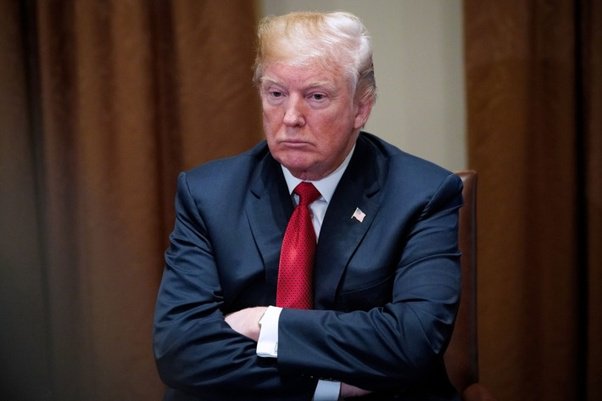One of the judges this story mentions is William Cassidy, who was promoted from an Atlanta IJ position to a BIA member position in 2019 by the Trump DOJ. Cassidy has an awful history that has been well-documented, but I'm still enraged reading this reporting.
\U0001f6a8New investigation: \U0001f6a8
— Tal Kopan (@TalKopan) January 22, 2021
How sexual harassment and misconduct has been allowed to flourish in the immigration courts, a system intended to give immigrants a fair chance to stay in the U.S.:https://t.co/Lw8hpK5jSe








More from Law
I was right. "Lawyer" starts out with name-calling and an insistence that trial is "unconstitutional". He's saying Trump's 1/6 speech was rather bland, and pretending that was the only thing the House managers talked about, and the managers were "slanderous."
Bilious bullshit.
"Lawyer" is arguing that since there were objections raised by Democrats to some of the vote counts in 2016, that means Trump didn't engage in sedition.
I'm not sure how that logic works.
Now they're running a Trump campaign commercial.
A bunch of whataboutism, contrasting patriotic music behind Trump's racist dogwhistles about "law and order" against Democrats making firey speeches with dark music.
He went to the moronic Gym Jordan argument that Trump couldn't have instigated insurrection if the violence was gonna happen anyway (without acknowledging Trump had been encouraging and building up to that violence for close to a year).
Bilious bullshit.
Trump's "lawyers" won't offer any sort of defense.
— DCPetterson (@dcpetterson) February 12, 2021
They will distract, deflect, distort and dissemble.
They'll engage in whataboutism and name-calling.
They'll call the trial "unconstitutional," even though the Senate decided it wasn't.
They won't engage with the facts.
"Lawyer" is arguing that since there were objections raised by Democrats to some of the vote counts in 2016, that means Trump didn't engage in sedition.
I'm not sure how that logic works.
Now they're running a Trump campaign commercial.
A bunch of whataboutism, contrasting patriotic music behind Trump's racist dogwhistles about "law and order" against Democrats making firey speeches with dark music.
He went to the moronic Gym Jordan argument that Trump couldn't have instigated insurrection if the violence was gonna happen anyway (without acknowledging Trump had been encouraging and building up to that violence for close to a year).
We are live!
Good evening everyone! Welcome to the Year 2021 and the first KP Social Media Discussion of the year. Today we are gonna discuss the concept of digital identity and the legal issues it raises.
It is not news that the fourth industrial revolution has led to many novel innovations on how everyone lives their lives.
Most operations in life can now be done digitally since the rise of the digital age and social networking, and since the Corona Virus mandated lockdowns most social interactions from work to school to parties, weddings and funerals are done digitally.
In Nigeria, there is a ramped up pressure to create a digital profile for every Nigerian through the National Identity Card Scheme which is now operated by the Federal Ministry of Communications and Digital Economy.
Our Social Media Discussions are Back!
— Kenna Partners (@Kenna_Partners) January 13, 2021
Today our topic is: Digital Identity and the Law
Join the Conversation on Twitter by 5PM! pic.twitter.com/TbbqMMQbLc
Good evening everyone! Welcome to the Year 2021 and the first KP Social Media Discussion of the year. Today we are gonna discuss the concept of digital identity and the legal issues it raises.
It is not news that the fourth industrial revolution has led to many novel innovations on how everyone lives their lives.
Most operations in life can now be done digitally since the rise of the digital age and social networking, and since the Corona Virus mandated lockdowns most social interactions from work to school to parties, weddings and funerals are done digitally.
In Nigeria, there is a ramped up pressure to create a digital profile for every Nigerian through the National Identity Card Scheme which is now operated by the Federal Ministry of Communications and Digital Economy.


























